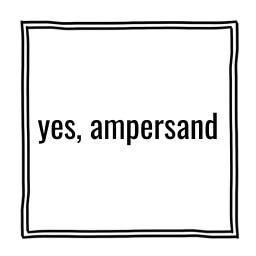Considering the Acceptance and Commitment Framework for Neurodivergent-Affirming Support
A gentle starting point for exploring your authentic self after identifying as neurodivergent
If you’ve recently discovered you’re neurodivergent and aren’t sure what comes next, I have some questions for you.
Do you want to explore your neurodivergence in a structured, supportive way?
Are you looking for tools to help you navigate change, build confidence, and honor your authentic self?
Do you want guidance for translating self-understanding into practical actions in relationships, work, and daily life?
If your answer is yes to any of these, the Acceptance and Commitment framework may be helpful to explore in journaling, reflexive exercises, therapy, counseling, coaching, or group work. More below.
If you want to know a little about me or my professional background, that’s awesome. These things help build trust. Click the button below.
[Considering the Acceptance and Commitment Framework for Neurodivergent-Affirming Support]
Finding a Path Forward
Identifying neurodivergence later in life can feel like stepping into a new world. You might feel relief at finally having a name for experiences you have always noticed. At the same time, you might feel grief for years lost or confusion about what this means for your relationships, work, and sense of self. Many late-diagnosed adults also recognize that they have experienced trauma shaped by years of being misunderstood or mislabeled. Others may have called you lazy, difficult, dramatic, controlling, too sensitive, or “too much” without understanding the underlying reasons. When you identify your neurodivergence as an adult, questions like “What now?” or “How do I live authentically?” can feel overwhelming while processing both the relief of recognition and the impact of past experiences.
If you are navigating this new understanding, the Acceptance and Commitment framework (ACT for therapy, ACC for coaching) can be one place to start. It is a framework, not a prescription, that can be applied in coaching, counseling, or therapy. It helps people explore their authentic selves, develop psychological flexibility (more on this later), and build skills for navigating life in alignment with their values. For late-identified neurodivergent adults, it offers a structured yet flexible way to take the first steps toward clarity, connection, and self-acceptance.
I discovered this framework by reflecting on my personal experiences over eight years of talk therapy and unmasking, the process of letting go of roles and behaviors used to hide neurodivergence for safety. The framework aligns with my needs and has shown benefits for other neurodivergent people seeking a realistic path toward wellness. The ACC/ACT framework creates a space where you can practice values-based flexibility, gain comfort in your natural state and develop tools to better manage change, uncertainty, and the challenges that come with unmasking.
To check out a list of my series with descriptions and links, click below.
What is the Acceptance and Commitment Framework?
ACT is considered a “third wave” of Cognitive Behavioral Therapy (CBT). You might have heard of CBT before. It focuses on noticing thoughts, challenging unhelpful ones, and changing behaviors. The term “third wave” simply means it is a newer generation of CBT that builds on earlier approaches. The first wave focused on behavior, the second wave added attention to thoughts and beliefs, and the third wave, including ACT, goes further by emphasizing acceptance, mindfulness, values, and living a meaningful life rather than just trying to change thoughts or behaviors.
ACT was developed in the 1980s by Dr. Steven C. Hayes, Dr. Kelly G. Wilson, and Dr. Kirk D. Strosahl (Guilford Press). It focuses on psychological flexibility — the process of noticing your thoughts and feelings, staying present, and choosing actions that fit your values. Instead of trying to “fix” thoughts or feelings, ACT emphasizes accepting them, observing them without judgment, and taking actions aligned with what really matters to you.
ACC takes these principles and adapts them for coaching and personal growth. While therapy often focuses on mental health diagnoses, ACC emphasizes personal development, well-being, and practical steps for living authentically. It can help you explore questions like:
Who am I and how do I want to show up in the world?
What feels meaningful to me now that I understand myself differently?
How can I take action that honors my authentic self?
Both ACT and ACC provide a framework to explore your authentic self, clarify values, and take steps toward a life that feels meaningful and aligned with who you really are.
New around here? Click the button below to get your bearings.
A Gentle Starting Point After Discovering You’re Neurodivergent
Late-identified adults often face unique challenges, including years of masking, navigating environments not designed for neurodivergent minds, and internalized messages that they must fit in. ACT/ACC is particularly helpful because it:
Emphasizes acceptance over “fixing”. Rather than trying to eliminate neurodivergent traits, the framework encourages noticing them and integrating them thoughtfully into your life.
Supports values-driven living. ACT/ACC helps clarify what matters most so that your actions, relationships, and routines can align with your authentic self.
Builds psychological flexibility. This means learning to notice your thoughts and feelings without getting stuck or overwhelmed. Instead of reacting automatically or judging yourself, you can respond in ways that fit your values and what matters most to you. It’s like strengthening your mental “muscles” to handle challenges with more ease.
Offers trauma-informed guidance. Many late-diagnosed adults have experienced misunderstanding, stigma, or trauma related to masking or misidentification. The framework provides tools to approach yourself and your experiences with compassion and support healing.
The Framework in Action
I like to think of ACT/ACC as a “space” you can work in, similar to a pinball machine. You are the pinball moving through the playfield (your experience), and the six core processes are the bumpers and flippers that guide you, redirect you, and help you move forward. There’s no “right” order for these processes. The path is flexible and can adapt to your needs, like the pinball moving through the playfield. Many people find it helpful to start with acceptance and move through the steps, but you can skip practices you don’t need right now or have already explored. The framework is flexible and designed to meet you where you are.
These processes are tools for self-exploration and growth that you can try in journaling, therapy, coaching, or group work. I’ve included some reflection questions for each to help you experiment and notice what, if anything, resonates.
Acceptance – Making space for feelings without judgment
What feelings have I been trying to avoid since learning I am neurodivergent?
If I let myself feel this fully, what would I notice?
Cognitive Defusion – Loosening the grip of repetitive or harsh thoughts
What thought keeps showing up when I think about being neurodivergent?
If I wrote that thought on a notecard, what would I want to say back to it?
Mindfulness – Observing experiences without needing to change them
What is happening to me right now as I reflect on my neurodivergence?
What small moment today did I experience with full presence?
Values – Clarifying what matters most
What do I want my relationships to feel like now that I understand myself differently?
What kind of life would make unmasking feel worthwhile?
Committed Action – Moving gently toward your values
What is one small step I could take this week that feels aligned with my values?
What would progress at my pace look like right now?
Self-Compassion and Resilience – Treating yourself kindly and building strength
If I treated myself the way I treat my closest friend, what would I say right now?
How have I survived and adapted up until this point?
Free unmasking resources on my website
If this post spoke to you, I invite you to visit my website where you can download free, practical guides designed to support your unmasking journey and deepen your understanding of neurodivergence. These resources are created with care for late-identified neurodivergent adults, their allies, and anyone seeking compassionate tools to live more authentically.
Putting It Into Practice
ACT/ACC are not quick fixes, but they offer a framework for taking the first steps after identifying as neurodivergent. It provides structure for:
Exploring your authentic self safely
Understanding how your neurodivergence interacts with daily life and relationships
Building skills for self-advocacy and self-care
Gradually creating a life aligned with your values
You do not need to use all the tools at once. Pick what resonates, leave what does not, and let it evolve over time.
Disclosure: As a practitioner, I use the ACC framework in my work with neurodivergent adults, but I want to be clear: no single approach is meant to be taken 100 percent. Every person is different, and different frameworks bring different benefits. You always have the autonomy to take what works for you and leave what does not.
If you have found yourself in analysis paralysis, unsure where to begin or hesitant to take the next step, this framework can offer a kind and gentle place to start. If it doesn’t fit, you can always try something else. The process of unmasking is far from linear, and there is no right or wrong way forward. What matters most is that you honor yourself, value who you naturally are, and move toward a life that feels authentic and comfortable. The path to increased well-being is something we all deserve.
Further Reading and Resources
What is Acceptance and Commitment Coaching? – Become Coaching & Training
Acceptance and Commitment Coaching: Distinctive Features – Contextual Consulting




